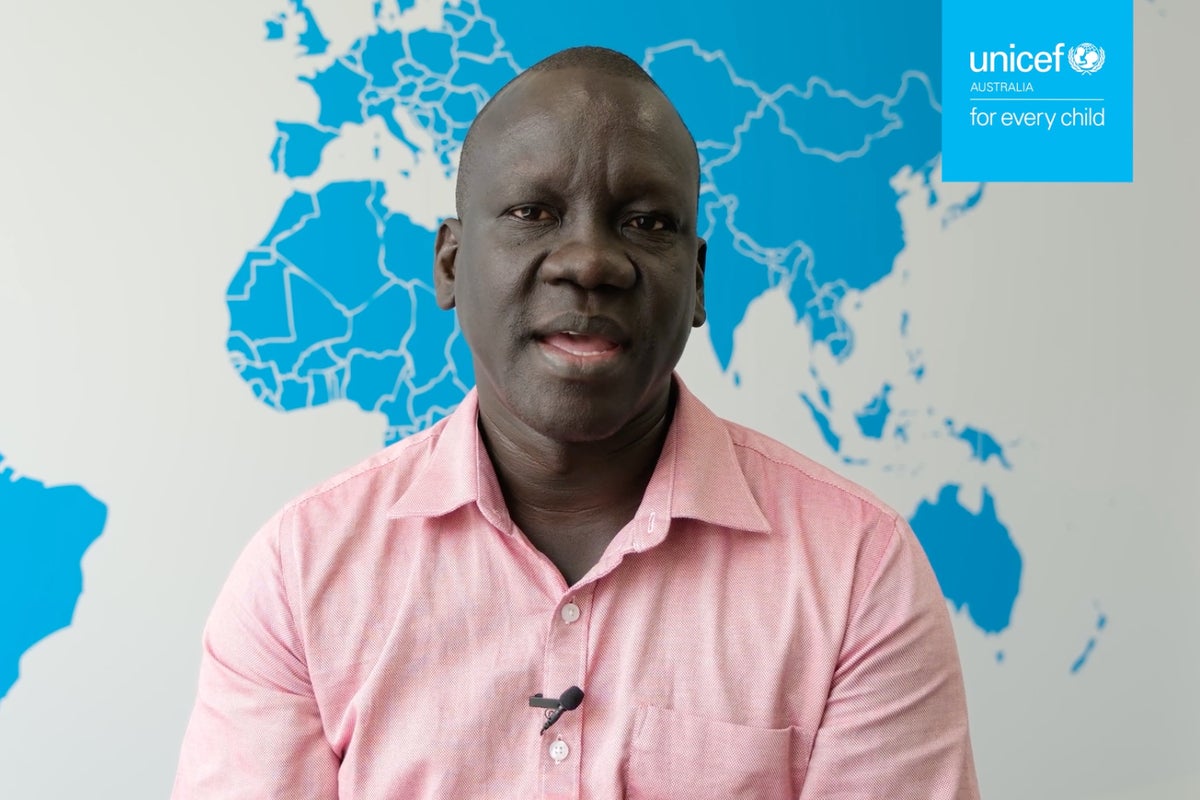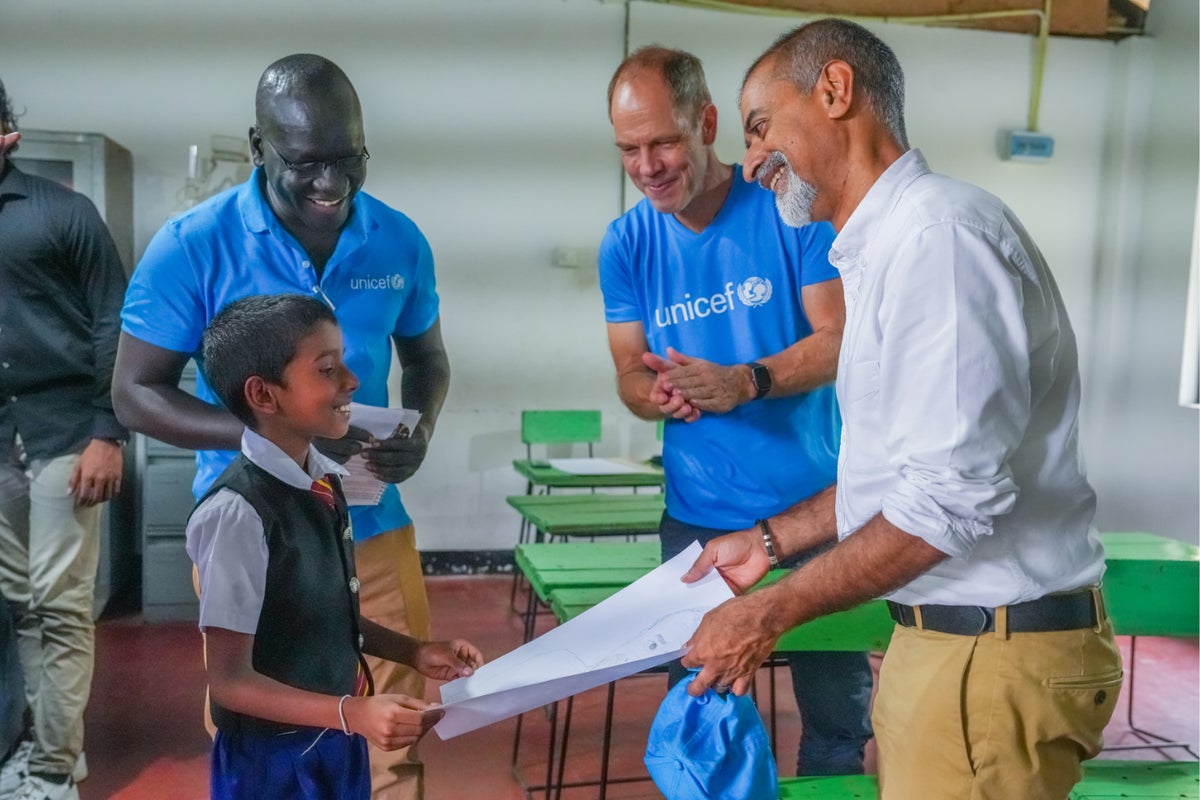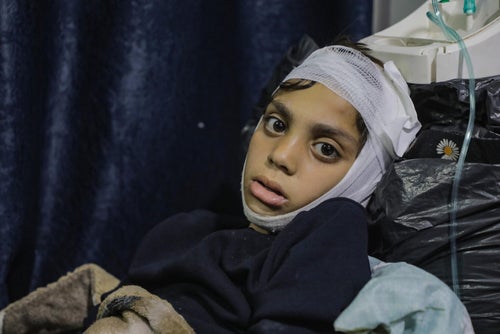Bismarck Swangin was about eight years old when he was displaced for the first time. He doesn’t know the date of his actual birthday, as he was born at home and his birth was never registered. Towards the end of 1987, escalating conflict in Sudan forced his family – including his parents and five siblings – to flee their home with little more than the clothes on their back. Bismarck remembers taking a small bag containing a ball and pieces of chalk, as well as a machete so his family could build a makeshift shelter.
The sudden loss of everything in just a moment – your home, your belongings, and your friends and relatives – takes a massive toll, especially on children. This impact worsens the longer a child remains displaced, as they miss out on school, lack access to nutritious food, and are unable to receive medical care if they become sick.
"We fled our home because of war. There’s no time to pack anything – you basically leave your life behind... That really breaks down the family structure and the huge impact of that is really on the child."
Over the next three years, the evolving conflict meant that Bismarck and his family were displaced multiple times, surviving on what little food they could find.

Bismarck Swangin shares his incredible story of resilience
As the situation in Sudan continued to deteriorate, his family crossed the border into Uganda to seek refuge. They were met by United Nations and Ugandan government officials at a reception centre where they were registered. They stayed there for about two months before they were taken to an established refugee camp where organisations like UNICEF provided health and education services to children and families.
While a majority of school-aged children tend to miss out on school due to displacement, Bismarck was lucky enough to attend school during his time at the camp. Others, however, weren’t so lucky. Many boys and girls often drop out of school to help provide for their families. But the opportunity Bismarck was given meant that later on, he was eventually able to finish his schooling and obtain a university degree, thanks to the support of humanitarian organisations like UNICEF.
The power of a vest
His formative experience with humanitarian workers inspired a young Bismarck to follow in their footsteps, with one factor in particular sparking his interest. From an early age, Bismarck knew he wanted to work in a profession where he could wear a vest.
“I got attached to [the idea of] wearing a vest because the people who came to help us came wearing vests, like humanitarian workers or journalists,” he explained.
After completing his studies, Bismarck embarked on a career in journalism before moving into the not-for-profit sector with UNICEF. Over the past 20 years, Bismarck has worked around the world championing children’s rights as a communications specialist for UNICEF. He has worked in some of the world's most difficult crises, including Yemen, Somalia, South Sudan, and is currently based in Sri Lanka. Luckily for Bismarck, that means he’s had multiple opportunities to wear a vest.

"I have come to realise that being a humanitarian worker is a much greater calling in the sense that it is really about being a voice for those who don’t have a voice."
After becoming a refugee at an early age, Bismarck has experienced firsthand the hardships many children around the world continue to face, and deeply understands the importance of humanitarian assistance from organisations like UNICEF. Bismarck says he feels privileged to work for UNICEF, in “a position where you can provide direct assistance to children as well as advocate for them.”
Now able to support his own nephews and nieces to get a tertiary education, Bismarck says his own story is testament to the ripple effect humanitarian assistance has on children.
“It empowers children to become global citizens that can contribute to the world, beginning from the family level to the community level, all the way to the domestic and global level,” he said.
"I have seen across the world that the work we do with the help of our supporters is the difference between life and death for millions of children. Unfortunately, the needs are widespread and continue to grow by the day, and that means more resources are required. But we look forward to continuing this important collaboration for the sake of children, for the sake of humanity."
For every child, safety
Right now, there are many children around the world who, like Bismarck, have been forced to leave their homes due to conflicts and natural disasters. With the needs greater than at any other point in UNICEF’s history, we need your help more than ever to help children before, during and after emergencies. Together, we can reach every child, no matter what.
Related articles
Stay up-to-date on UNICEF's work in Australia and around the world
















